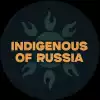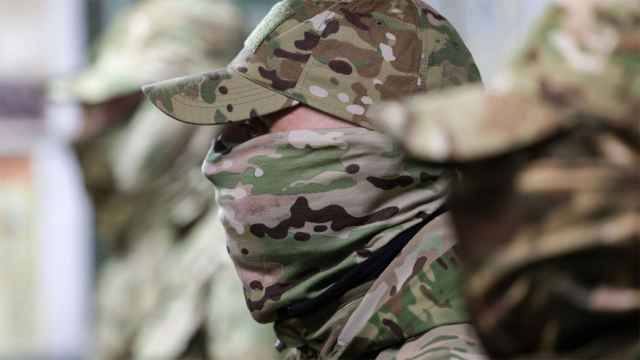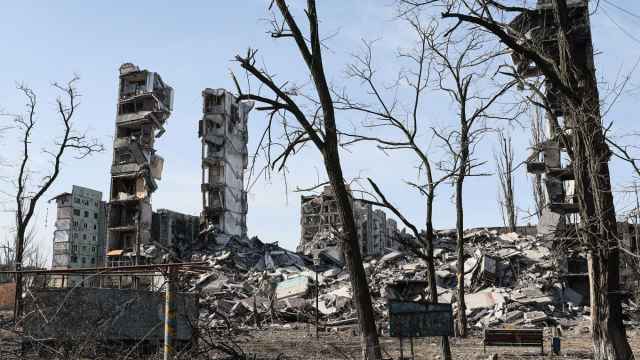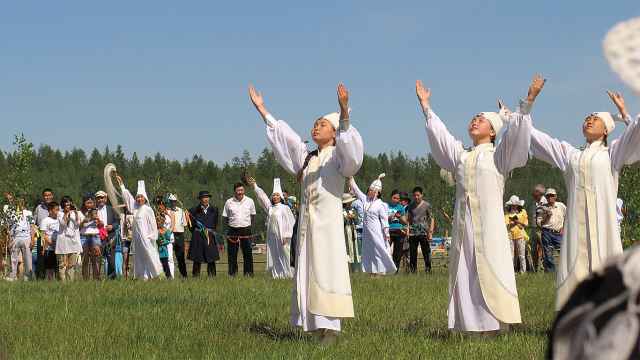Note: Vladimir Kara-Murza has released a statement on social media saying that his comments that were interpreted as saying that Russians and Ukrainian were the same people were taken out of context, ignoring that he said it was "allegedly" the case.
On April 11, 2025, at a hearing of the French Senate, Russian opposition figure and vice president of the Free Russia Foundation, Vladimir Kara-Murza, answered a question from Senator Claude Maluret about the situation in the national republics in Russia. Kara-Murza’s response included extremely racist ideas that it is easier for non-Russian soldiers to kill Ukrainians because of the difference in culture and language.
In this way, he was siding with far-right nationalist movements. We are outraged by this representation of anti-war Russia in the international arena.
In particular, Kara-Murza quoted a conversation with an unnamed colleague who works with prisoners of war. He recounted her opinion that the Russian Defense Ministry seeks to recruit as many non-Russian soldiers for the war as possible because “psychologically it is very difficult for Russians to kill Ukrainians because we are the same ... But if it is someone from another culture, apparently it is easier.”
“We are the same. They are a very close people, as everybody knows,” Kara-Murza continued. “We have almost the same language, the same religion, centuries of common history. But if it's someone from a different culture, apparently it's easier. That's what a colleague said to me yesterday. I never thought much about it. I thought the reasons were more economic. But now, after she said this to me yesterday, I started thinking about it as well.”
This statement is totally unacceptable. It is racist and colonialist.
At the moment, Kara-Murza's supporters are claiming as an excuse that the politician was only quoting his colleague, not expressing his own opinion. Regardless of whose opinion he quoted in this passage, the very reference to it at an official event implies that he thinks such an opinion is legitimate.
There is a widespread colonialist tradition in Russia of accusing representatives of Asian and Caucasian peoples — in fact, all non-white people — of being particularly cruel and bloodthirsty. For centuries, Russia has used the myth of “cruel barbarians” who supposedly have no compassion for members of another culture to justify colonial wars and the exploitation of “non-Russians.” This trope sounded particularly heinous coming from a politician who calls himself a supporter of democracy and human rights.
As representatives of Indigenous peoples and ethnic minorities, we are outraged that the leading so-called liberal voices of Russian politics continue to reproduce racist narratives that dehumanize us. Kara-Murza is not the first: Maria Pevchikh made a similar point on Popular Politics in 2022. We see in these statements the same colonial logic that guides the Kremlin, as well as an attempt to absolve ethnically Russian people of responsibility for war crimes committed by the Russian army.
Such statements reinforce in the public's mind the idea that “non-Russian barbarians” alone are killing people in Ukraine. Given that liberal anti-Putin politicians today can speak to large audiences, their racist statements shape audience opinion and reinforce racist tendencies in society.
In addition, Kara-Murza's statement also denies self-determination to Ukrainians themselves, whom he, in the best traditions of Russian colonial thought, calls “practically one people” with Russians, emphasizing the idea of a “brotherly nation” with a common language. Over the years, we have repeatedly heard from Ukrainians about the inadmissibility of such an equation.
In addition, Ukraine is not a mono-ethnic Slavic state. It is home to many different peoples who speak different languages. For example, the Crimean Tatar people, who were the first to suffer from Russian military aggression, having been deprived of the opportunity to live freely in their indigenous land, Crimea, as a result of the 2014 occupation.
Here are some important things to remember:
-
Senator Maluret's question itself contains a serious factual error: he stated that non-Russians make up “the majority” of the Russian army. In reality, more Indigenous peoples and ethnic minorities are killed per capita but make up a minority in the absolute number of soldiers in the Russian army.
-
Buryat soldiers were initially blamed for the war crimes in Bucha, citing their “special cruelty.” An investigation showed that a regiment of Pskov paratroopers had committed atrocities in Bucha and most soldiers who perpetrated the brutal murders were people of Slavic appearance and with Slavic names. The commander, Artem Tareev, who gave the order to shoot people, was from the Rostov region. No supposed cultural similarities prevented these soldiers from killing Ukrainian civilians with monstrous cruelty.
-
The first person convicted of war crimes in Ukraine was not a Buryat or a Chechen, but a Russian soldier from the Irkutsk region named Vadim Shishimarin.
-
The decision to start a criminal war in Ukraine was made not by representatives of the Indigenous peoples, but by Moscow. Orders are given not in the national republics, but in the Kremlin.
-
Kara-Murza is silent about the reasons why Russia’s ethnic republics and regions are so much poorer than Moscow and St. Petersburg. Their asymmetric economic development is a direct consequence of Moscow's colonial exploitation of our regions.
- The Russian army has and is still committing war crimes in Chechnya, Syria, the Central African Republic, Mali and Ukraine.
Using marginalized and discriminated Indigenous peoples as cannon fodder, while attempting to shift responsibility for war crimes onto them, is the rhetoric of far-right nationalists. We consider it categorically unacceptable for an opposition politician to use such rhetoric on an international platform, supposedly speaking for the entire anti-war population of Russia.
The opportunity to speak to international headers and influence their political decisions includes responsibility for the consequences. We demand that Vladimir Kara-Murza comment on the statements, apologize for them, and begin to take into account the voices of Indigenous people and representatives of ethnic minorities in Russia in his work.
A Message from The Moscow Times:
Dear readers,
We are facing unprecedented challenges. Russia's Prosecutor General's Office has designated The Moscow Times as an "undesirable" organization, criminalizing our work and putting our staff at risk of prosecution. This follows our earlier unjust labeling as a "foreign agent."
These actions are direct attempts to silence independent journalism in Russia. The authorities claim our work "discredits the decisions of the Russian leadership." We see things differently: we strive to provide accurate, unbiased reporting on Russia.
We, the journalists of The Moscow Times, refuse to be silenced. But to continue our work, we need your help.
Your support, no matter how small, makes a world of difference. If you can, please support us monthly starting from just $2. It's quick to set up, and every contribution makes a significant impact.
By supporting The Moscow Times, you're defending open, independent journalism in the face of repression. Thank you for standing with us.
Remind me later.








